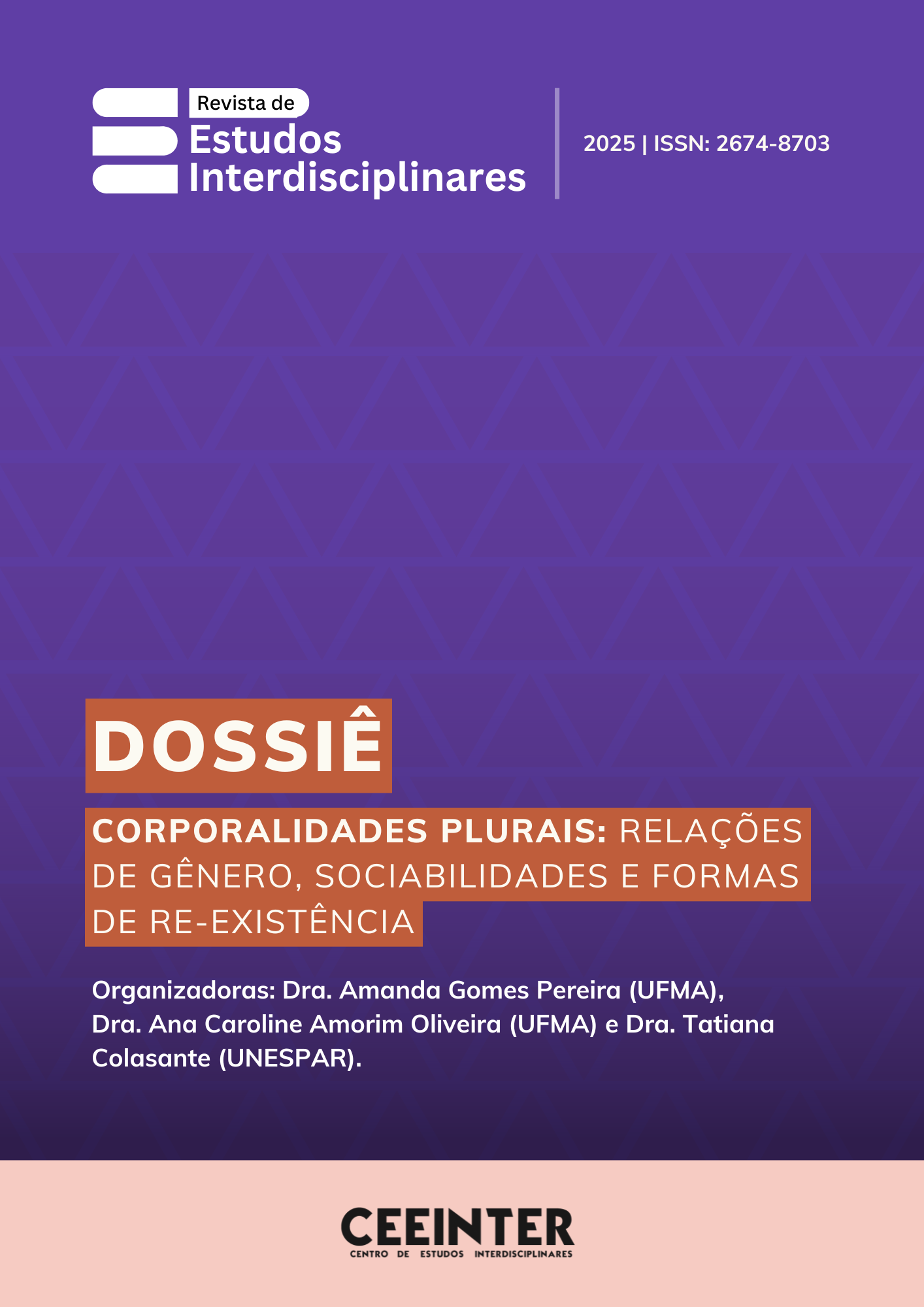DOSSIER PRESENTATION: "PLURAL CORPORALITIES: GENDER RELATIONS, SOCIABILITIES AND FORMS OF RE-EXISTENCE"
Visualizações: 9Keywords:
Gender StudiesAbstract
We live in a society in which plural corporalities stand out as a powerful symbol of resistance and (re)affirmation of identity. These bodies challenge traditional gender norms and social stereotypes, revealing the complexity of human relationships and the diversity of experiences that make up the fabric of everyday life.
Gender relations have undergone significant transformations, especially due to social movements that have fought—and continue to fight—for plurality and equality. As a result, new spaces of sociability have emerged, where different identities can express themselves freely, even in the face of conservatism that seeks to undermine identity and gender agendas and achievements.
In this context, the idea of re-existence is essential to understand how marginalized subjects and groups struggle to assert their presence and claim their rights through artistic and cultural practices, activism, and/or the creation of communities that celebrate diversity—helping to break oppressive patterns and dynamics.
By recognizing the diversity of corporalities, we are called to rethink our own attitudes and to join in a collective struggle for social justice—one that allows us to envision not only new forms of resistance but also transcendence. To contribute to these necessary and urgent discussions—which must take place across various spheres of society and from interdisciplinary perspectives—this dossier presents a collection of articles by researchers dedicated to the scientific study of gender, inviting us to reflect and fight for a world in which diversity is not only acknowledged, but truly experienced.
Downloads
References
Não se aplica.

Downloads
Published
How to Cite
Issue
Section
License
Copyright (c) 2025 Interdisciplinary Studies Journal

This work is licensed under a Creative Commons Attribution 4.0 International License.
The Journal of Interdisciplinary Studies adopts the Creative Commons Attribution 4.0 International License (CC BY 4.0), which allows for sharing and adapting the work, including for commercial purposes, provided proper attribution is given and the original publication in this journal is acknowledged.












